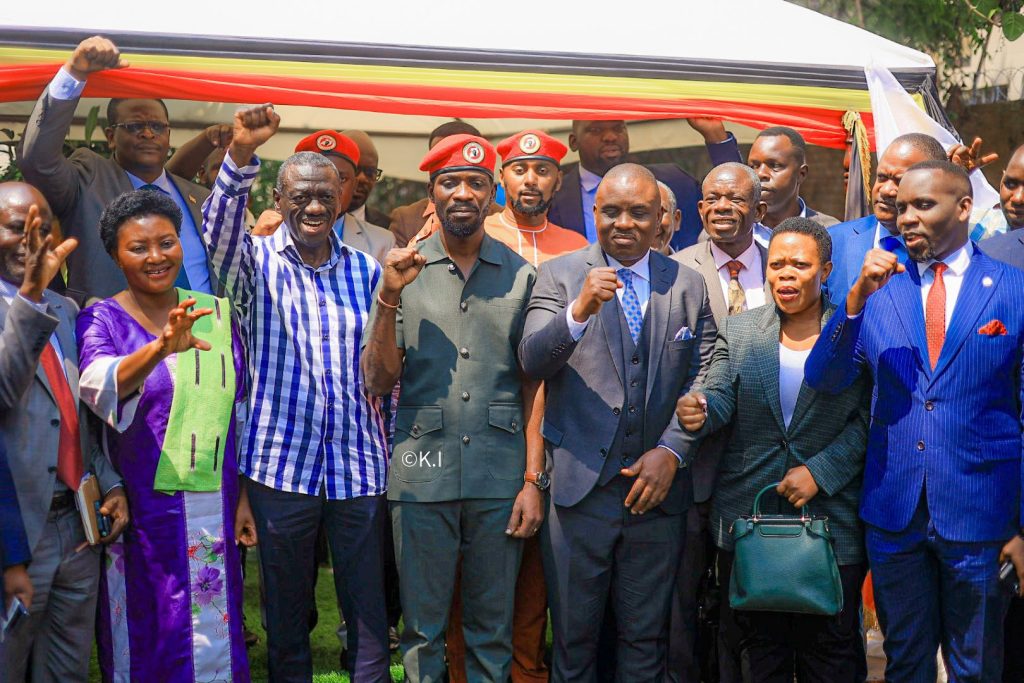The concept of a united front to challenge the ruling NRM regime in Uganda has become increasingly elusive, as deep divisions within the opposition continue to hamper any meaningful collaboration. The purported “United Forces of Change” appears to be more of a mirage than a tangible political alliance, as various factions struggle to find common ground and present a coherent strategy.
The opposition landscape in Uganda is marred by internal strife, with competing factions vying for legitimacy and influence. The official FDC, led by Patrick Amuriat Oboi, finds itself at odds with the unofficial Katonga faction, which has aligned itself with other opposition parties. This lack of unity within the FDC is emblematic of the broader disarray that plagues the opposition in Uganda.
Similarly, the Democratic Party, under the leadership of Nobert Mao, finds itself in a state of dissonance, as the official party leadership distances itself from the purported unity efforts, while individuals like Lulume Bayiga claim to represent DP within the so-called United Forces of Change. This dissonance raises questions about the authenticity and coherence of the opposition’s collective actions.
The recent gathering at Kizza Besigye’s Katonga Road offices, where the United Forces of Change declared their intent to resume civil disobedience and mobilize against President Museveni, highlights the challenges of creating a unified opposition front. The absence of key opposition players such as the Najjanankumbi FDC, DP, JEEMA, and UPC, further underscores the fractured nature of the opposition’s unity efforts.
Looking ahead to the 2026 elections, the prospects of presenting a single opposition candidate appear bleak, given the entrenched divisions and self-interest that permeate the opposition landscape. The NUP’s internal dynamics, marked by concerns over potential loss of parliamentary positions, further complicates the prospects of achieving genuine unity within the opposition.
Moreover, the opposition’s reliance on civil disobedience and activism as a means of political mobilization faces skepticism, as many Ugandans have moved beyond such tactics and are focused on their livelihoods. The disconnect between the opposition’s strategies and the priorities of the populace raises questions about the relevance and effectiveness of their approach.
In addition, recent statements and actions by prominent opposition figures have raised concerns about their commitment to inclusive politics. Bobi Wine’s remarks on sectarian issues and his stance on contentious social issues have drawn criticism and further eroded the prospects of a cohesive opposition movement. These developments have only served to reinforce the perception that the United Forces of Change is more of a media spectacle than a genuine political force.
Ultimately, the current state of the opposition in Uganda underscores the significant challenges that lie ahead in fostering a unified and effective alternative to the ruling NRM. The divisions, self-interest, and lack of a cohesive vision continue to impede the opposition’s ability to present a credible and compelling alternative to the status quo. Without genuine efforts to bridge these divides and prioritize the interests of the Ugandan people, the prospects for meaningful change remain uncertain.
